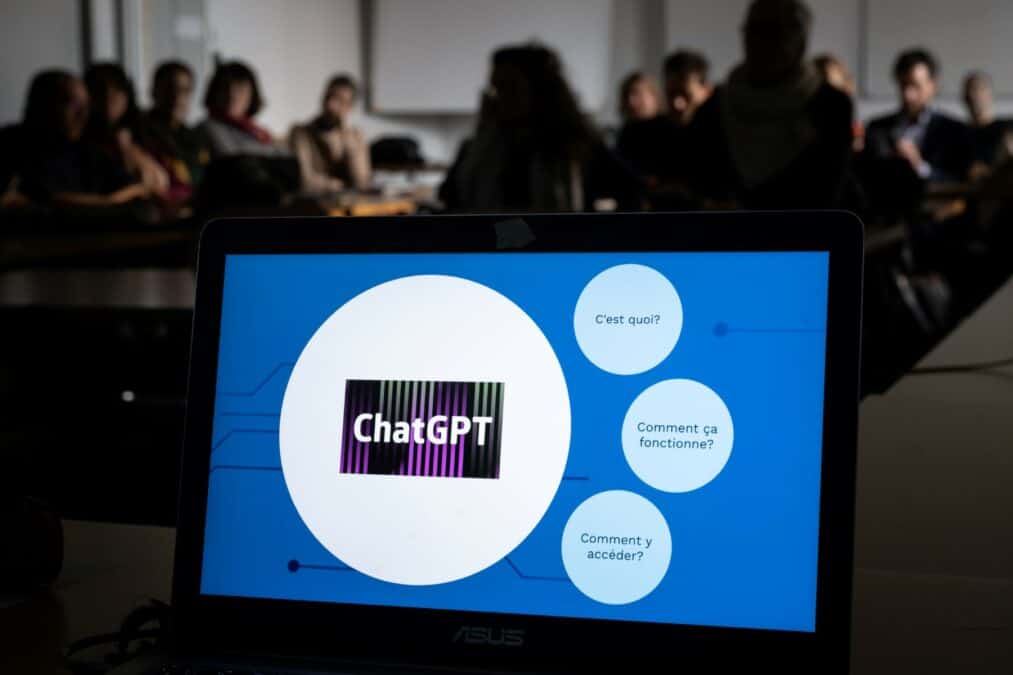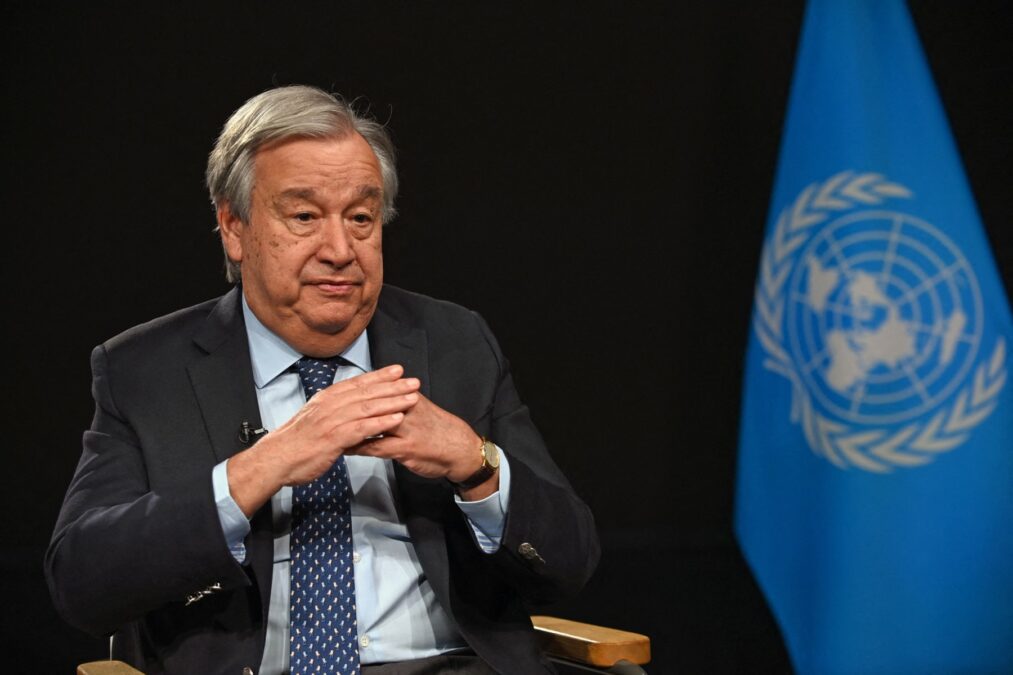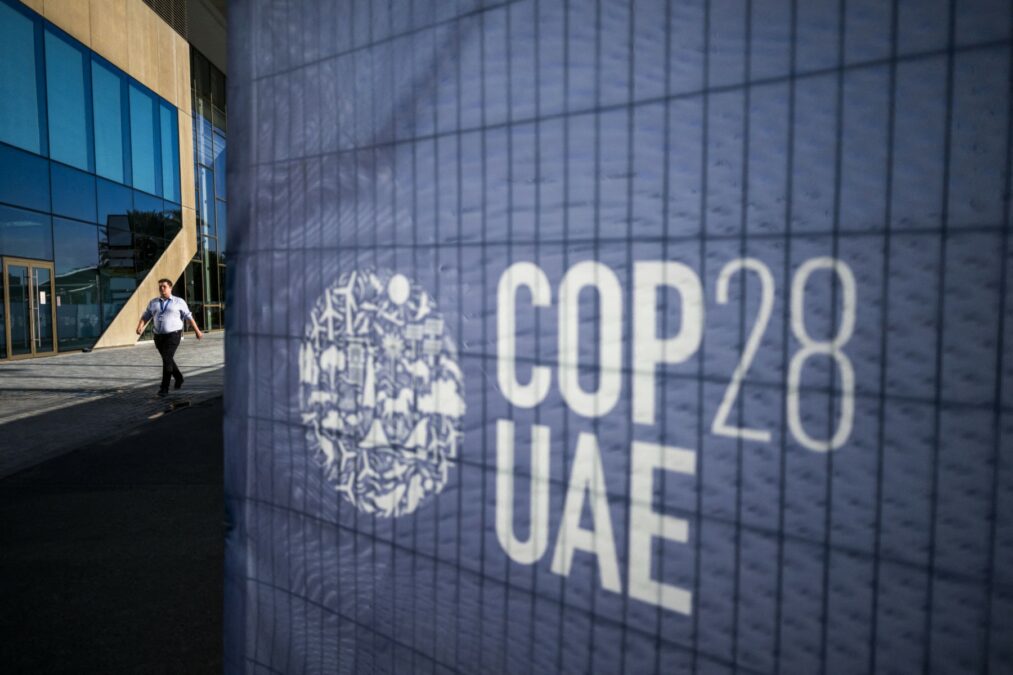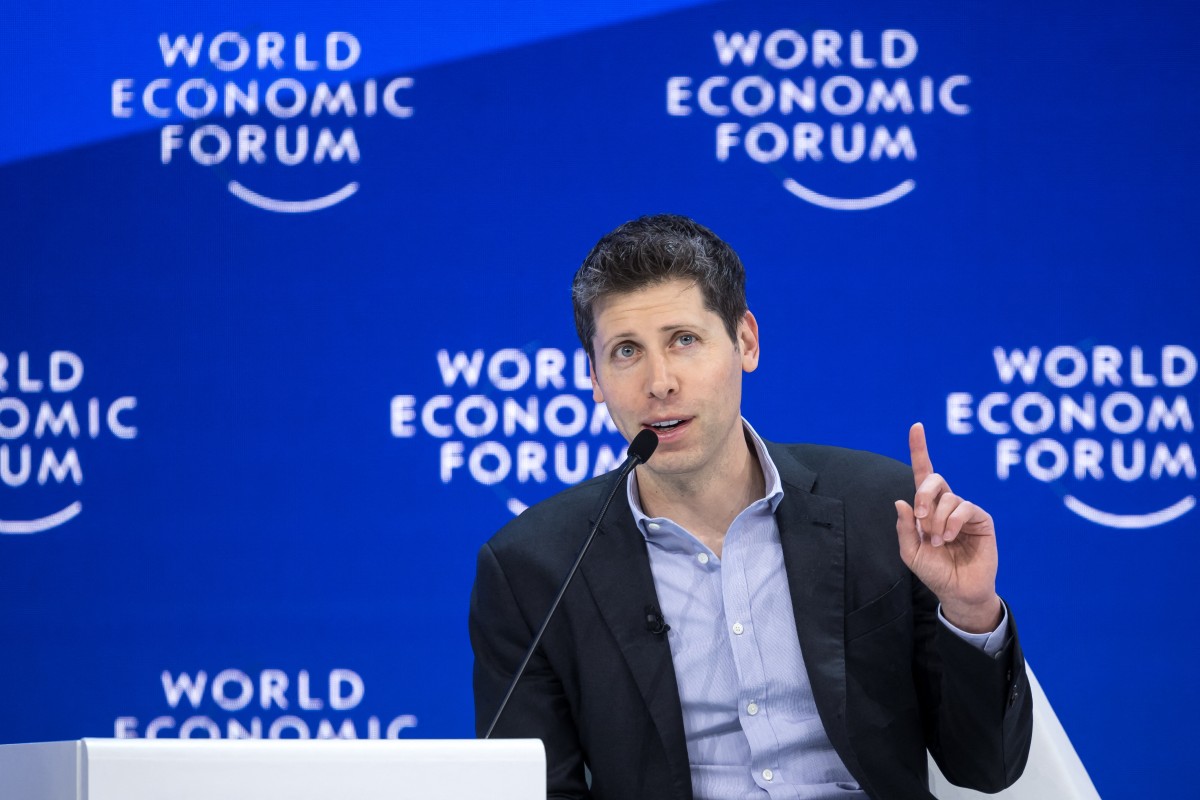Davos, Switzerland — Walking around in Davos where the global elites gathered for the World Economic Forum this week, there were two inescapable words on the windows: artificial intelligence.
If 2023 was the year everyone including investors and politicians were feverishly excited about AI, 2024 looks set to be a more sober year where people try to tackle how the world benefits from AI while mitigating its risks.
AI was the buzzword on everyone’s lips at the World Economic Forum, when they weren’t talking about a possible return of former US president Donald Trump.
The world’s biggest tech companies including Google, Meta and Microsoft were out in force, with their most senior executives in town for panels but also unofficial chats with businesses and politicians from around the world.
The hype over AI reached fever pitch last year after ChatGPT burst onto the scene in late 2022, demonstrating the rapid developments of the technology.
The chatbot could pour out expressive poems and essays in seconds, and even pass medical and legal exams.
ChatGPT also focused minds on AI regulation to protect individuals from its dangers and harness innovation, with politicians in China, the European Union and the United States passing or working on legislation last year.
UN Secretary General Antonio Guterres said on Wednesday climate and AI had been “exhaustively discussed” by governments, media and leaders at Davos.
“And yet, we have not yet an effective global strategy to deal with either,” he said.
China’s Premier Li Qiang called for global cooperation on the issue while Guterres told reporters that President Xi Jinping told him he wanted the UN to be at the center of efforts on AI governance.
Guterres last year set up a panel on AI that delivered a draft report in December, with recommendations on five guiding principles for AI including inclusivity.
Microsoft president ‘optimist’
The cautious tone had already been set before Davos began on Monday after the International Monetary Fund (IMF) published a report with sobering statistics.
The IMF said AI would affect nearly 40 percent of jobs around the world, and some 60 percent in the advanced world — replacing some jobs while complementing others.

With people attending from all over the world including China, India, Saudi Arabia, South Africa, there was also focus on what AI will mean for the Global South.
The UN’s panel of experts includes Marietje Schaake, international policy director at Stanford University Cyber Policy Center.
The UN has a “unique role with its global legitimacy”, she said, “to correct the wrong, if you want to think about it that way, of not having included people, their contexts, their lived experiences, their needs from the global south”.
Microsoft President Brad Smith told AFP he was already an “optimist” before Davos about the world working together better on AI. “Nothing has changed,” he said.
“What Davos enables is lots of conversations with people who are not always in the same room, and you take stock of where things are, you find out where people have values in common, and you find where you have challenges that you need to address,” he said Wednesday.
Sapthagiri Chapalapalli, head of Tata Consultancy Services Europe, said the “overwhelming majority” of people he spoke to at Davos “feel that (AI) has immense potential”.
He described how he fielded different questions from participants including how to use AI to improve productivity.
Another question that came up, Chapalapalli said, was: “‘How do we do AI in a more responsible manner?'”
The EU believes its comprehensive law to regulate AI is one of the answers to managing the technology’s risks.
Disinformation fears
There is already a big test for regulators and companies as billions worldwide prepare to vote in polls in Europe, India, Mexico and the United States.
At Davos, the dangers posed by AI for those elections were on the agenda.
Senior EU official Vera Jourova said she pressed big tech executives on what they were doing to prepare for the elections.
Jourova also said Brussels’ efforts on its “AI Act” were welcomed.
“What I hear very often from American companies is that the European way of regulating things ahead mitigates risks ex ante, that it creates a bigger legal certainty than in the United States,” she told journalists.
ChatGPT creator OpenAI’s CEO, Sam Altman, acknowledged the concerns over AI’s impact on elections this year but insisted his company was “focused” on the issue.
Davos Dialogue: Rebuilding Trust
Amid rising geopolitical tensions, close to 3,000 policy-makers, business executives, international organization and civil society leaders, academics and innovators from around the world came together for the 54th Annual Meeting of the World Economic Forum to rebuild a basis of trust, generate new ideas and develop partnerships that can improve outcomes for people, economies and the planet.
More than 450 sessions and workshops took place during the Annual Meeting 2024, facilitating dialogue, debate and alignment across many perspectives.
Over the course of the week, the Forum and its partners also launched or advanced more than 50 high-impact initiatives, serving as ongoing platforms for multi-year collaboration across geographies and industries.
“We must rebuild trust – trust in our future, trust in our capacity to overcome challenges, and most importantly, trust in each other,” said Klaus Schwab, Founder and Executive Chairman of the World Economic Forum. “Trust is not just a feeling; trust is a commitment to action, to belief, to hope.”
Trust, cooperation and security
World leaders called for rebuilding trust in the face of increasing fragmentation:
“Geopolitical divides are preventing us from coming together around global solutions for global challenges,” said United Nations Secretary-General António Guterres.

“It is essential that we discard prejudice, bridge differences and work as one to tackle the trust deficit,” said Li Qiang, Premier of the People’s Republic of China.
Ajay S. Banga, President of the World Bank Group, emphasized the interconnectedness of crises; “We cannot think about eradicating poverty without caring about climate. We cannot think about eradicating poverty without thinking about healthcare. We cannot think about eradicating poverty without thinking about food insecurity and fragility.”
“We have a responsibility to be stewards of our beautiful, small planet’s future,” said Kristalina Georgieva, Managing Director of the International Monetary Fund. “There is something that leaders need to embrace,” she added, “and it is the responsibility to act, even if it’s not popular.
Middle East crisis
A series of sessions addressed the conflict in the Middle East. Mohammed Shyaa Al Sudani, Prime Minister of Iraq, warned that unless the international community acts now to end the conflict, there is a risk of a stalemate and a possible expansion of hostilities in the region.
Jordanian Prime Minister Bisher Hani Al Khasawneh emphasized the need for a comprehensive ceasefire in Gaza and the importance of international support for humanitarian efforts. Qatari Prime Minister Sheikh Mohammed bin Abdulrahman Al-Thani called for protecting shipping security in the Red Sea and for a meaningful dialogue to end the war in Gaza. Israeli President Isaac Herzog called for new approaches to peace and security for both Israelis and Palestinians.
“I can’t think of a time when there’s been both a greater multiplicity and greater complexity of the challenges that we’re dealing with,” said Antony Blinken, Secretary of State of the United States.
On the role of the meeting in providing a space for diplomacy and diverse viewpoints, Børge Brende, President of the World Economic Forum, said: “The Annual Meeting serves as a vital platform for inclusive dialogue, bringing together parties to identify pathways toward achieving shared priorities.”
Special meet in Riyadh
The Forum announced it will hold a special meeting, hosted by the Kingdom of Saudi Arabia, on “Global Cooperation, Growth and Energy for Development” on 28-29 April 2024 in Riyadh.
Participants made the case that a new growth model is needed, one that balances the drivers of growth and productivity with the complexity of innovation, inclusion, sustainability and resilience.
Climate, nature and energy
Building on momentum from the UNFCCC COP28 meeting, participants focused their discussions on driving energy efficiencies and addressing energy demand, and protecting and restoring nature.

“We know exactly what we ought to be doing to slow down and eventually reverse climate change and loss of biodiversity,” said Jane Goodall, Founder of the Jane Goodall Institute and United Nations Messenger of Peace. “If only various countries lived up to promises they made about reducing emissions.”
“The companies who do not put enough emphasis on energy efficiency will be less competitive,” added Fatih Birol Executive, Director of the International Energy Agency.
People, equity and human development
Investments in the economy, technology, or the environment cannot succeed without the equivalent investment in people and equitable opportunities. Participants advanced projects on jobs and skills, digital inclusion and healthcare, among others.
If we don’t want anxiety to preclude progress around AI and its impact on jobs, workers must be included in the process around its risks and deployment through collective bargaining,” said Christy Hoffman, General Secretary, UNI Global Union.
“The Reskilling Revolution was timely when the Forum launched the initiative four years ago, and it is now even more urgent,” said Jonas Prising, Chief Executive Officer of the ManpowerGroup. “As tech adoption continues at pace, increasing people’s employability and providing them with greater control of their prosperity and earning potential is critical to creating a future that is better for the many, not the few.”








